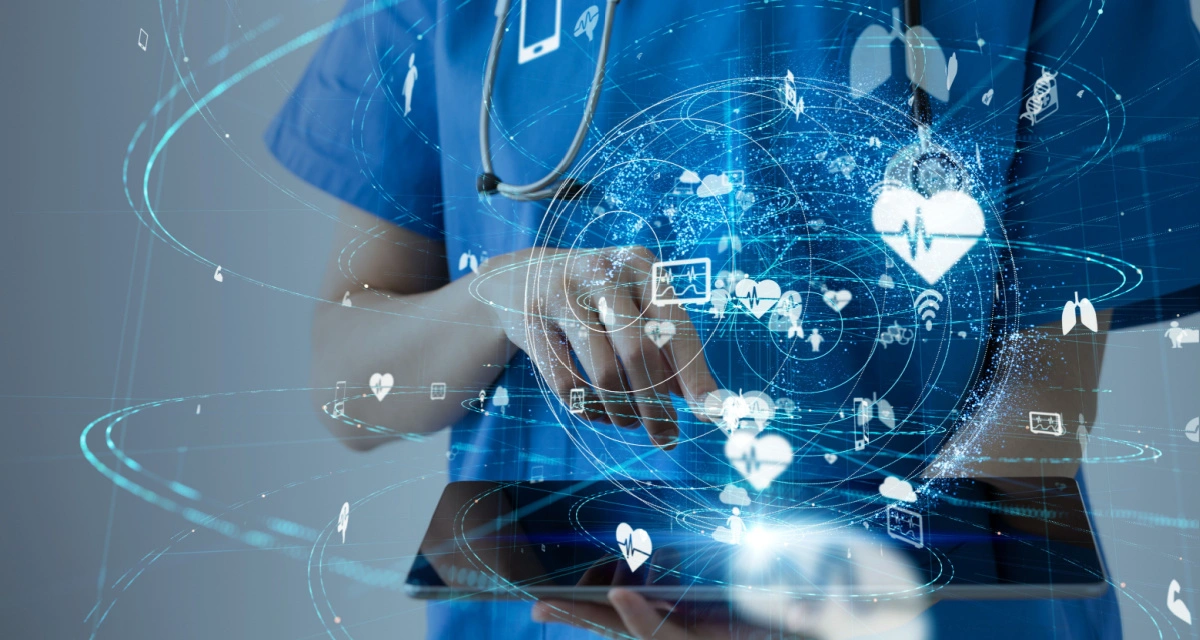The ability to streamline processes without sacrificing data integrity or regulatory compliance has become a focal point in the evolution of complex, traditionally regulated industries. Integrating technology into healthcare now provides simple solutions that improve the patient journey, while ensuring safety and compliance standards.
One crucial point is the way technology is simplifying the interaction between patients and healthcare professionals, turning the bureaucratic process into a simple journey. Solutions such as remote consultations, scheduling apps, and chatbots reduce bureaucracy and turnaround time, increasing access to medical care. These innovations not only simplify the process, but also alleviate security concerns, using biometric technologies and electronic signatures to ensure the authenticity and safety of remote interactions.
Technology brings more flexibility to medical care
For patients, there are simple solutions such as the possibility of conducting a consultation remotely, or scheduling tests and care from doctors through chat programs or applications, says Guilherme Cato, technical director of dr.consulta, a network of medical centers that provide medical consultations, examinations and health services. It made routine care more flexible and easy without compromising safety. “This is very positive, as many people give up testing or consultations because they do not want to waste hours in bureaucratic service systems,” he adds.
Moreover, technology has transformed the internal management of medical centers. Integrated electronic medical record systems store patients' entire health history in a secure and accessible way, allowing healthcare professionals in different units to access necessary information.
“At dr.consulta, investments in innovation are directed towards creating solutions aimed at caring for patients’ health in an intelligent way. A unified, integrated medical record stores a patient's entire health history, including examinations, prescriptions, illnesses and symptoms. This system allows the healthcare team to access information from any unit, ensuring simplicity in the patient experience, while following strict security and data protection standards,” commented Guilherme Cato.
Technological innovations bring new perspectives to medical care
The changes in healthcare have been impressive in recent years, bringing a series of technologies that have revolutionized medical care. The telemedicine and teleconsultations sector enables remote medical consultations, facilitating access to healthcare, especially in remote areas or for patients with limited mobility. Artificial intelligence (AI) is used to assist doctors in diagnosis, analyzing large sets of data and medical images to identify patterns and abnormalities, and improve diagnostic accuracy.
For patients, wearables and monitoring devices such as smart watches and health sensors provide the ability to continuously monitor vital signs, physical activity, and even early signs of health problems. For physicians, integrated electronic medical record systems store a patient's medical history securely and easily, allowing different healthcare professionals to access relevant information in real time.
“Another advantage of dr.consulta is the predictive analysis of data collected at our intelligent pre-consultation and at other points in the process, allowing us to identify patterns and optimize resources, reducing operating costs while maintaining efficient service. For example, one of the solutions developed by dr.consulta “consulta, skalAI, calculates patient demand through algorithms and artificial intelligence and automatically suggests the best days and schedule times for each doctor. With this we were able to increase the number of patients seen and the number of appointments,” notes the specialist.
There is still potential to use virtual reality (VR) and augmented reality (AR) in medical simulations to train healthcare professionals, plan complex surgeries and even to treat phobias and rehabilitation treatments. “These technologies have transformed the delivery of healthcare services, making them easier, more efficient and personalized, while maintaining a high level of safety and compliance with medical regulations,” highlights Guilherme Cato.
To ensure the privacy and security of patient data, practices such as strong encryption, access control, and constant awareness of professionals are essential. Additionally, strategic partnerships and compliance with privacy regulations enhance data security. Data analysis also allows you to customize treatment plans and improve customer satisfaction, as healthcare professionals have complete visibility into each patient's health history, predicting prognosis and preventing complications.
Implementing innovative solutions remains a challenge for the healthcare sector
Even with its many advantages, the healthcare sector still faces resistance to implementing new technologies, especially since it is a highly regulated sector. However, health technology companies focused on health and technology are able to reduce this resistance by standardizing already digital processes, and facilitating the implementation of advanced solutions, such as remote consultations at the beginning of the pandemic, as explained by CTO Dr. Consulta: “Great, the process is based on a powerful technology platform tailored to our needs. This greatly reduces any resistance to change and allows us to implement complex solutions in a short period of time, as was the case, for example, with our remote consultation model.” At the beginning of the Covid-19 pandemic.
Barriers to widespread technology adoption in health care can be overcome through organizational change strategies, investments in training, and clear demonstrations of long-term benefits. Organizations such as Mayo Clinic and Cleveland Clinic in the USA, and Brazilian companies such as Memed, Conexa and Neuralmed, are examples that have led major transformations in healthcare through technology, demonstrating success stories in implementing innovative solutions to improve healthcare. Experience and operational efficiency.
Technology not only enhances the efficiency of operations in the sector, but also promotes cultural changes in healthcare services, enabling a more humane approach by freeing up time for closer interactions between patients and healthcare professionals.

“Writer. Analyst. Avid travel maven. Devoted twitter guru. Unapologetic pop culture expert. General zombie enthusiast.”

